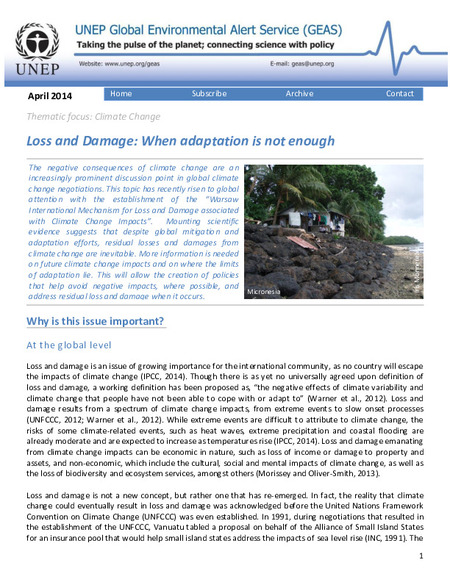| dc.contributor | Science Division | en_US |
| dc.contributor.author | United Nations Environment Programme | en_US |
| dc.date.accessioned | 2022-10-24T07:02:37Z | |
| dc.date.available | 2022-10-24T07:02:37Z | |
| dc.date.issued | 2014-04 | |
| dc.identifier.uri | https://wedocs.unep.org/20.500.11822/40940 | |
| dc.description | The negative consequences of climate change are an increasingly prominent discussion point in global climate change negotiations. This topic has recently risen to global
attention with the establishment of the “Warsaw International Mechanism for Loss and Damage associated with Climate Change Impacts”. Mounting scientific evidence suggests that despite global mitigation and adaptation efforts, residual losses and damages from climate change are inevitable. More information is needed on future climate change impacts and on where the limits of adaptation lie. This will allow the creation of policies that help avoid negative impacts, where possible, and address residual loss and damage when it occurs. | en_US |
| dc.format | Text | en_US |
| dc.language | English | en_US |
| dc.relation.ispartof | UNEP Global Environmental Alert Service (GEAS) | en_US |
| dc.rights | Public | en_US |
| dc.subject | climate change | en_US |
| dc.subject | coastal flooding | en_US |
| dc.subject | temperature | en_US |
| dc.subject | climate change adaptation | en_US |
| dc.title | Loss and Damage: When Adaptation is not Enough - UNEP Global Environmental Alert Service (GEAS) April 2014 | en_US |


